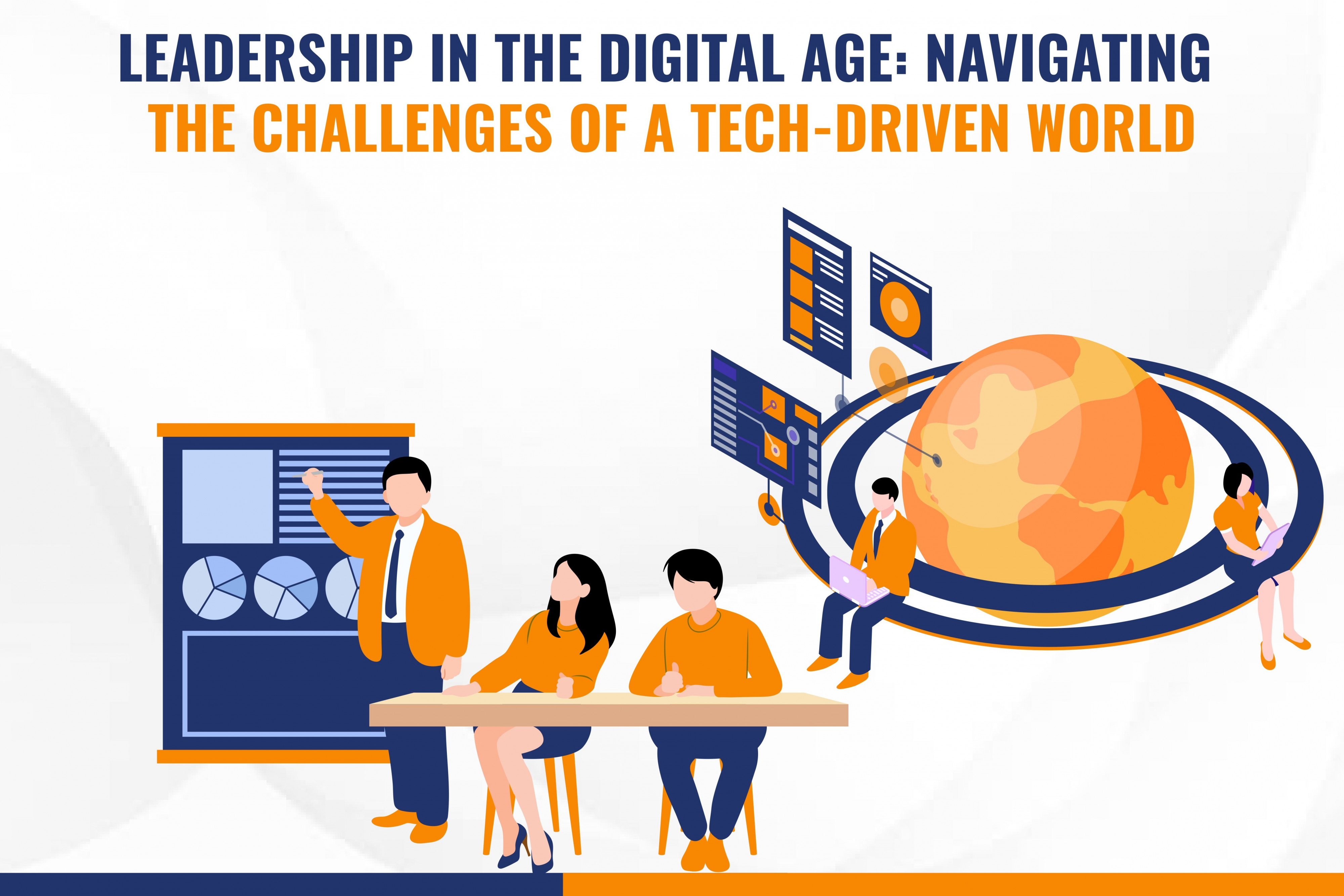
Leadership in the Digital Age: Navigating the Challenges of a Tech-Driven World
In today's rapidly evolving world, where technology shapes every aspect of our lives, effective leadership is crucial for navigating the challenges presented by a tech-driven environment. The digital age has brought about significant transformations in various industries, requiring leaders to adapt and develop new strategies to remain competitive. This article explores the concept of leadership in the digital age and provides insights into how leaders can effectively navigate the challenges posed by a tech-driven world.
The Importance of Leadership in the Digital Age
In the digital age, technology has become an integral part of our personal and professional lives. Businesses are increasingly relying on technology to drive innovation, streamline processes, and enhance productivity. However, the rapid pace of technological advancements also brings along a set of unique challenges. This is where effective leadership plays a pivotal role.
Embracing Change and Innovation
In the dynamic landscape of the digital age, leaders hold a crucial role in nurturing change and innovation within their organizations. A core responsibility entails fostering a culture that embraces emerging technologies and adapts to new work methodologies. Encouraging teams to cultivate a growth mindset and engage in experimentation becomes pivotal in inspiring employees to remain at the forefront of advancements. By empowering individuals with the Best Leadership Development Programs to think outside the box and drive innovation within their domains, leaders create an environment that propels their organization's success amidst the ever-evolving digital realm.
Developing Digital Literacy
In an era dominated by technology, leaders face the imperative task of prioritizing the development of digital literacy within their workforce. Recognizing that digital skills are indispensable for achieving success, leaders invest in Leadership Training Programs and resources to equip their employees with the necessary digital competencies.
By empowering individuals with the ability to navigate and leverage digital tools effectively, leaders enhance both the performance of individual team members and the overall digital transformation of the organization. This commitment to cultivating digital literacy fosters a workforce that is well-prepared to embrace the opportunities and challenges presented by the tech-driven landscape, ensuring the organization remains competitive in the digital age.
Nurturing Agile Leadership
In the fast-paced and ever-evolving digital age, the significance of agile leadership cannot be overstated. Leaders must possess the ability to swiftly adapt to shifting circumstances and make well-informed decisions based on data. This agility is crucial for achieving success amidst the complexities of the digital landscape. Agile leaders exhibit openness to new ideas, displaying flexibility in their approaches.
They skillfully navigate their teams through uncertain and dynamic environments, inspiring confidence and resilience. This is why Best Leadership Development Programs are crucial. By embracing experimentation and iteration, they harness the power of technology to drive continuous improvement and stay ahead of the competition. Such agile leadership fosters an environment of innovation and growth, positioning organizations to thrive in the tech-driven world.
The Challenges of a Tech-Driven World
In the realm of a tech-driven world, leaders are confronted with a distinct set of challenges alongside the abundant opportunities that technology offers. Acknowledging and comprehending these challenges is imperative for effective leadership in the digital age. Leaders must grasp the complexities posed by rapid technological advancements, such as data privacy and security concerns, digital transformation complexities, and talent acquisition and retention in a competitive landscape.
By understanding these challenges, leaders can develop strategic approaches to overcome them, fostering an environment that embraces innovation, adapts to change, and addresses the unique obstacles that arise in the dynamic tech-driven realm. This proactive stance enables leaders to navigate the digital landscape successfully and guide their organizations toward sustainable growth and success.
Data Privacy and Security
In the landscape dominated by technology, data privacy, and security have emerged as critical focal points for leaders. In the era of data-driven operations, leaders bear the responsibility of safeguarding sensitive information and upholding compliance with relevant regulations. To fulfill this duty, leaders must establish and implement robust cybersecurity measures that fortify the organization's digital infrastructure against potential threats.
Equally important is fostering a culture of data privacy, instilling a sense of responsibility and awareness among employees regarding the protection of confidential data. By prioritizing data privacy and security, leaders build trust among customers and stakeholders, demonstrating their commitment to maintaining the integrity and confidentiality of valuable information in the tech-driven world. For this to be maintained it’s crucial to train employees with technical and Leadership Training Programs.
Digital Transformation
Digital transformation is a continuous journey that demands adept leadership in navigating intricate technological landscapes. Leaders must possess the acumen to identify pertinent digital solutions, ensuring their effective implementation while orchestrating organizational change. Aligning the digital transformation strategy with overarching business objectives becomes paramount, as it drives the collective vision forward.
Leaders foster a culture of adaptability, embracing the changes necessitated by digital transformation, and nurturing employee engagement throughout the process. By facilitating a seamless transition, leaders enable their workforce to embrace new technologies and workflows, ensuring a cohesive and harmonious integration of digital initiatives. This holistic approach empowers organizations to capitalize on the opportunities presented by digital transformation, promoting innovation and sustained growth in the ever-evolving digital age.
Talent Acquisition and Retention
In a highly competitive tech-driven world, attracting and retaining top talent is a significant challenge. Leaders must create an inclusive and engaging work environment that appeals to digital-savvy professionals. Offering attractive compensation packages, providing opportunities for growth and development, and fostering a culture of innovation are key strategies for talent acquisition and retention.
Final Words
In conclusion, leadership in the digital age is a complex and multifaceted task. Leaders must adapt to the ever-changing technological landscape, develop digital literacy, foster innovation, and overcome the challenges posed by data privacy, digital transformation, and talent acquisition. By embracing these responsibilities, leaders can effectively navigate the challenges of a tech-driven world and steer their organizations toward success in the digital age.
